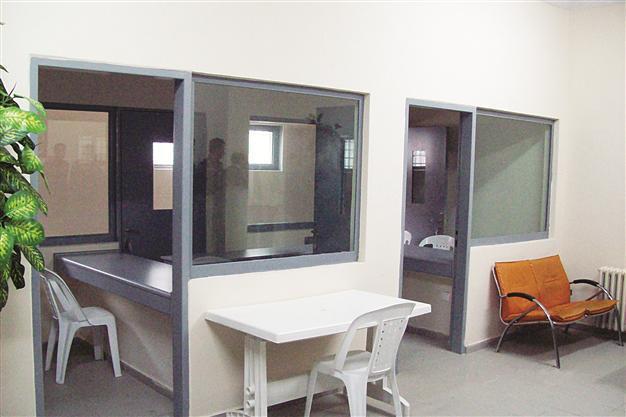Analysis: Europe in wait-and-see stance over İmralı talks
ANKARA - Hürriyet Daily News

The talks on Kurdish issue takes place in İmralı Prison, where PKK leader Abdullah Öcalan serves life sentence. AA photo
It’s been nearly a week since the new round of talks between the government and the outlawed Kurdistan Workers’ Party (PKK) began in a bid to end violence and find a solution to the Kurdish question, but this landmark development has received unexpectedly low-profile reactions from Western countries.
Although European countries evaluate the dialogue process as a positive development, they prefer to adopt a wait-and-see position before issuing strong public support to the process. For many European ambassadors in Ankara who are closely following recent developments in the wake of a meeting two Kurdish politicians had with Abdullah Öcalan, imprisoned leader of the PKK, there are so many questions to be answered before making a genuine assessment of the process. Lack of information on whether there has been a roadmap agreed on by the two sides makes it difficult for them to analyze the developments, but they nonetheless want to emphasize some important points they have observed so far.
One important and positive point they make is the inclusion of the Peace and Democracy Party (BDP) in the process, a difference from the 2009-2011 attempts. Recalling the role exercised by the Spanish Batasuna and Irish Sinn Fein in efforts to end violence in these two respective countries, Europeans welcome the BDP taking part in this process. That was surprising for many, as the BDP was almost non-existent during the hunger strike crisis.
Including the political wing of the PKK, which has a group in Parliament, is an additional factor increasing the legitimacy of the process. But this lays a much more vital burden on the BDP, which has to be careful in fulfilling this duty.
Another difference from the 2009 initiative is the fact this current process places Öcalan at the core of the dialogue, at the same time creating communication channels with the European wing of the PKK and in the Kandil Mountains where the PKK’s leadership is based through the BDP.
Role of European statesThirdly, many of them believe that the role of third-party countries from the European continent will be minor compared to the Oslo process in 2009. They do not expect a request from Turkey for mediation with the PKK, as all indications prove that the government will opt for a rather direct channel. However, in future phases of the process, they might be asked to host some senior PKK members if reports in the Turkish press are correct.
Another point they make is the readiness of the Turkish public to accept an agreement with the PKK if this would bring about peace and an end to violence. In this light, the support from the main opposition Republican People’s Party (CHP) is very much valuable and meaningful, according to the European diplomats.
Equally important is to what extent the government will be able to meet the political and cultural demands of Kurds, who have been vocal for “democratic autonomy,” which would grant them the right to self-govern, especially in the southeast.
Although Europeans are not planning to impose a solution or pressure the government on specific issues, they will at the same time insist on “a just solution” at the end of talks. The fourth judicial package and the writing of the new Constitution process are important indicators in this end, according to European diplomats.
